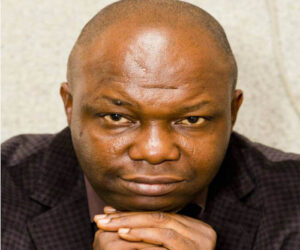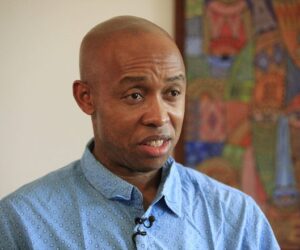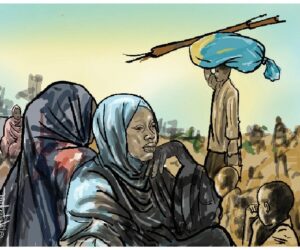WITHOUT any doubts whatsoever, the twin policies of the unplanned, wrong-headed, and precipitate removal of petrol subsidy and the massive devaluation of the national currency, the Naira, have at the root of the serious problems plaguing Nigeria and the pauperisation of about 200 million citizens. This regime pulled the plug on the alleged subsidy on petrol the same day it assumed office on May 29, 2023. In fact, it did so within the hour of taking office. At the time it did so, there was no full complement of the government. There were no advisers, no assistants, no ministers, no carriers of its vision and mission [assuming that it had any, really] except the structures it inherited from its predecessor, a regime that was widely regarded as a monumental failure and a scourge on our people. It was widely acknowledged that Muhammadu Buhari did not just waste eight years of Nigeria, but that it set the country back by a generation, or 30 years. Buhari’s was a sad case of serial bungling and ‘ungovernance’. He was an affliction.
If corruption and industrial scale theft of crude oil in the upstream sector of the industry were the primary problems as were correctly diagnosed by successive administrations, it then follows that the right thing to have been done would have been to visit the root of the challenges with the full weight of the federal government. This regime didn’t. It was the beginning of it getting its priorities wrong. And that was understandable though unacceptable because high ranking government operatives, leading lights in the military, and other collaborators were the crude oil thieves. Those who stole Nigeria’s crude oil in handheld jerry cans or even those who move them in hundreds or thousands of jerry cans in trucks were not our problem. How much damage can they inflict on the national revenue, that’s, if this category of thieves existed? Almost zero. Stories were rife of huge and monster-size tankers criss-crossing our ocean fronts day and night, and their bellies being filled to the brim, and their leisurely sailing away to export markets in the Americas, Europe and Asia. The monster-like vessels were escorted by some members of the armed/security forces of Nigeria safely out of our territorial waters. The proceeds from the sales go to the global syndicate. Everybody knew that the crude was stolen. The ships’ crews were aware. Regulators and monitors of ships’ movements and registers were aware of the illicit business. The buyers were in the know that they were buying stolen products. But they did not care because it was a case of willing sellers and willing buyers. It was immaterial that illegality was written all over the transactions.
The then new regime turned a blind eye to the bazaar in the Niger Delta and went for the jugular of the soft target-the hapless and helpless citizens of the country. It deregulated (read taxed ) the downstream sector immediately which opened the floodgates of the problems now besetting the country and her citizens. It was a petrol pump head tax. And every act of taxation comes with consequences. While the majority of Nigerians struggled with coping with basic needs of life, the privileged few with access were allowed sufficient time to clean up their act of illegally lifting crude oil to our collective loss and detriment. Because of the new tax (deregulation), the price of a litre of petrol rose rapidly from less than N200 to about N1,500 between 2023 and 2024. The bottom was knocked off our disproportionately informal economy. The impact of the ill-digested action was swift and severe and crushing. The movement of people and goods was mainly by road, and the majority of cars, buses, and trucks were powered by petrol. So the movement of people was affected. The same for goods. It was a common sight in mid and late 2023 to see trending videos of workers, artisans and traders going to and fro their various destinations on foot. Even up till today some people still cover significant distances on foot before completing their journey by bus or tricycles or commercial motorcycles otherwise called ‘okada’ or ‘inaga’. Many car owners ditched their vehicles and opted for commercial buses or even ‘leggediz Benz’ or ‘footwagon’, a deprecating description of covering distances on foot.
The other day, an otherwise respected economist and public intellectual who indeed was one of my teachers during my chief executive programme [CEP] certificate course at the Lagos Business School [LBS], Dr. Bismark Rewane, was lamenting that the patience of Nigerians was being tasked, taxed, and stretched by the unintended fallouts from the policy options adopted by the ruling All Progressives Congress [APC] in the implementation of its economic reforms. I was scandalised but I took solace in the suspicion that he was striving to be seen by the authorities to be politically correct in his public speech. I reminded myself that there were times during the disastrous years of Buhari that the same Rewane spoke in like manner. What could be unintended or unforeseen in inflation spiking and poverty deepening when the price of petrol was raised five fold in a country where petrol played, still plays, an outsized role in the movement of people and goods? In an environment where other modes of transportation are either underdeveloped or non-existent. Rewane’s lamentation was pathetic and patronising. It was nauseating. And an insult to Nigerians. He could not have forgotten that now Nigeria’s president, Alhaji Bola Ahmed Tinubu, had as an opposition politician in January 2012 or thereabout, written an epistle to the then President Goodluck Jonathan opposing the removal of petrol subsidy. Tinubu’s arguments then were unassailable about the dire negative multiplier effects of such action on Nigerians. To now say that the negative fallouts of petrol subsidy removal, and the subsequent mindless devaluation of the Naira soon after were unanticipated, would amount to a gratuitous insult to our collective sensibilities. The policy of sudden removal of petrol subsidy was wrong. And its haphazard implementation made it worse. It was inconceivable that no measures were thought of, and so none was put in place to cushion the inevitable privations that the measure would inflict on Nigerians, particularly the vulnerable segments of the population.
The subsequent claim that the country would have gone bankrupt was a poor attempt to gaslight the people. If anything is capable of bankrupting this country, and that could still happen, it is the greed and corruption of the ruling elite. The country was hemorrhaging in terms of revenue because ‘urban bandits’ and sundry barbarians were in charge of the treasury. They are still there. There’s no evidence that they have been flushed out or that any attempts are being made to do so. Indeed, the only available evidence is that more of their types are being recruited into the upper echelons of the system including those who helped the former military head of state, the late Gen. Sani Abacha, to steal and stash billions of dollars of Nigeria’s money abroad. By the way, in which universe do you remove petrol subsidy, and then start borrowing money indiscriminately like a drunken gambler, in some instances from commercial lenders, and in foreign currencies, to combat the problem you created? Will it not be likened to an arsonist turning around to play a firefighter? The country was bleeding revenue because every government agency including Nigerian Customs, the Nigerian Police, the Road Safety Commission, NIMASA, and others abandoned their primary and core mandates to become revenue collectors. The monies so collected allegedly on behalf of the federal government were never transparently accounted for. The men in the field sorted out their bosses in the office. Those ones in the office made returns to the bigger men and women in the supervising ministries. And whatever was paid to the public treasury was accepted without questions because those who should raise alarm have been compromised. Who then would question the returns. At the same time the bigger crooks or their agents were in the crude oil producing and exporting platforms helping themselves to our commonwealth. In the face of the bazaar, the government found it convenient and easier to subject ordinary folks to a chokehold through the so-called subsidy removal and currency devaluation. It was their line of the least resistance.
Petrol subsidy was pulled in May 2023. And Naira devaluation followed immediately in June. Two policies with the capacity to deal a deadly blow on any economy especially a stunted and paralysed one such as Nigeria’s were unleashed on the heels of each other. And there were no plans in place to reduce their impacts on the people. Governance is not about the whims and caprices of the rulers. It’s not about trial and error. It’s not strictly business in the typical style of running a corporation. Rulers don’t treat citizens as clients. Governance should be about covenants between the leaders and the led. The relationship between the people ‘chosen’ to lead and the citizens may be secular but it is still divine in many respects. Nigeria’s 1999 Constitution as amended is very clear and equivocal while stating in Chapter Two that the primary purpose of government is to ensure the wellbeing of the people. This constitutional prescription was not optional for our rulers and was not designed to be effected when it is convenient for them.
*To be continued.

![People, privations and public policy priorities [2]](https://nnu.ng/wp-content/uploads/2025/08/Logo2-1.jpg)






